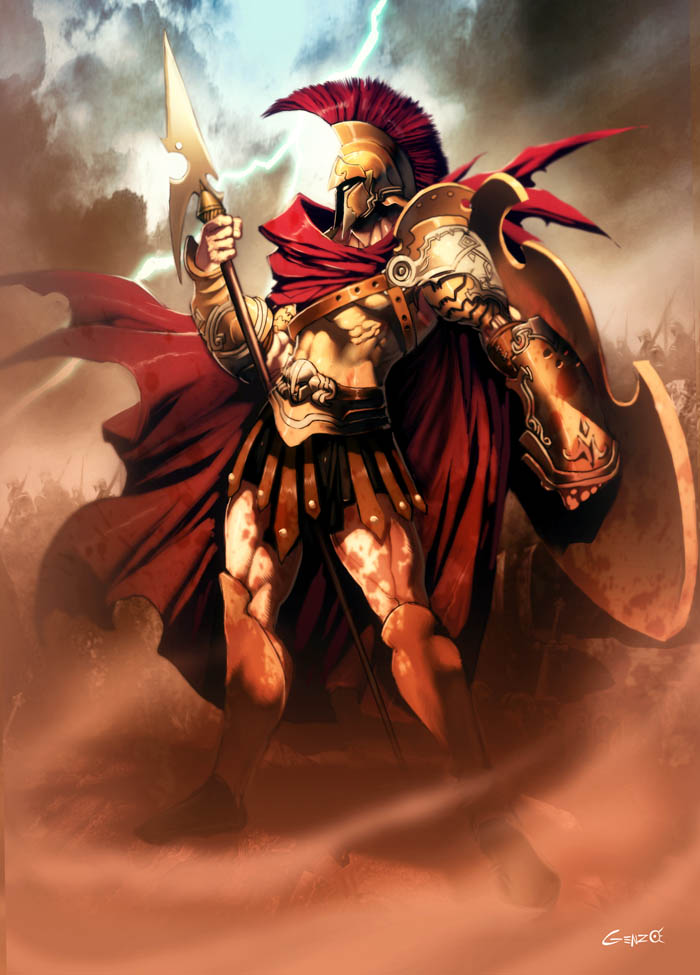
In ancient Greece, Ares was a complex character, embodying both the glory and the horrors of battle. He was the son of Zeus and Hera, but unlike other gods, he didn’t possess a distinct and well-defined role. While Athena represented strategic warfare and wisdom, Ares was associated with the violence and chaos of war. He was known for his impulsive and bloodthirsty nature, reveling in the chaos and destruction that battle brought. This unpredictable temperament made him a figure both feared and revered by mortals and gods alike.
Ares’ relationship with Aphrodite, the goddess of love and beauty, added another layer to his character. Their secret affair, despite Aphrodite’s marriage to Hephaestus, demonstrated Ares’ passionate and reckless nature. This affair further highlighted his impulsive tendencies, as he disregarded the potential consequences of his actions.
Throughout history, Ares’ portrayal has evolved, reflecting changing societal attitudes toward war. In ancient Greece, his veneration varied across city-states; some embraced his martial attributes, while others viewed him less favorably due to the destructive nature of war. The Roman equivalent of Ares, Mars, was similarly revered as a god of war, yet he also symbolized agricultural fertility, demonstrating the nuanced interplay between war and prosperity.
In literature and art, Ares’ character continued to evolve. In Homer’s “Iliad,” Ares is depicted as a volatile deity who actively participates in battles, favoring Troy in the Trojan War. This portrayal exemplifies his inclination for chaos and bloodshed. However, as Greek society moved towards valuing reason and strategy, Ares’ impulsive traits were often criticized, and he became a symbol of the destructive aspect of war.
As time progressed, Ares’ significance waned in comparison to other gods, such as Athena and Apollo, who embodied wisdom, civilization, and arts. In Roman mythology, Mars retained his martial role, but he also assumed attributes associated with agriculture and fertility, reflecting the Roman emphasis on these aspects of life.
In contemporary culture, Ares’ legacy can be seen in various forms of media, from literature to films and video games. He often appears as a complex antagonist, embodying the brutality of war. The dichotomy between Ares’ savage nature and the need for strategic thinking in warfare continues to resonate with audiences, prompting reflection on the costs of conflict.
In conclusion, Ares, the Greek god of war, encapsulates the multifaceted nature of warfare and its impact on human society. His representation in Greek mythology and subsequent interpretations highlight the tension between chaos and strategy, violence and wisdom, and the ever-evolving attitudes toward war. From his ancient origins to his continued presence in contemporary media, Ares remains a symbol of the enduring complexities associated with the human experience of conflict


















Add Comment